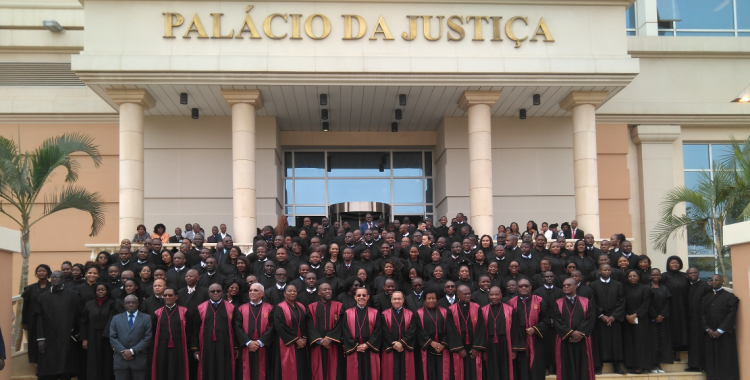The National Assembly began on Wednesday the consultation process on the proposal for a punctual revision of the Constitution of the Republic, submitted to parliament by the President of the Republic, João Lourenço.
In his speech, the representative of the Angolan Judges Association, José de Freitas, expressed concern in relation to the judicial power, fundamentally in relation to the separation of powers, the independence of judges and the material limits of alteration of the Constitution.
"Article 176 was the one that most frightened the class, because it brings in an addition four numbers, from six to nine, that effectively came to increase a substantial change in the structure of judicial power, even clashing with some norms that are not subject to revision," he said.
According to José de Freitas, the referred articles, if altered as intended, clash with other articles of the Constitution of the Republic of Angola and also with international principles, which Angola has assumed.
"What we see in the proposal causes us some strangeness. We did not find it and we made a point of requesting it in the technical opinion that we sent - which we accompanied with an annex, in which we studied different constitutions from around the world, to try to understand the reason for this [proposed] system, which aims for the courts of first and second instance to have a kind of intermittent sovereignty," he stressed.
The proposal provides that only when they meet in trial or at the level of decisions, judges will have sovereignty, which "from a practical point of view is almost unfeasible," said José de Freitas.
If the proposal is approved as it stands, continued José de Freitas, as an example, a judge of first or second instance would have to request authorization from the Superior Council of the Judiciary to request the breaking of bank secrecy.
"These are some consequences that we can foresee and that, in fact, in practical consequences will represent the death of that beautiful part of the Constitution, which are the fundamental rights, liberties and guarantees, which the courts have the mission to protect," he said.
For his part, the representative of the National Union of Public Prosecutors, Valter Cambongue, expressed great concern over the way the judicial power is viewed in the proposal.
"The judicial power, with the exception of the Courts of Account and the Constitutional Court, does not dictate its budget policy, so that today it has great difficulty in managing its needs and this is indeed a great concern," he said, stating that today only the judicial power is left with its sovereignty.
In this sense, he appealed to the National Assembly to consider the proposal presented by the President of the Republic, many of which the union disagrees with.
"This proposal confuses the Superior Council of the Judiciary [CSMJ] with the courts. The CSMJ is an administrative, management body, and the courts are the true organs of sovereignty. The CSMJ does not judge cases, it does not make decisions about cases, so it cannot be an organ that holds sovereignty", he stated.
According to Valter Cambongue, the courts, from the superior courts to the courts of first instance, are the true guardians of sovereignty, "as stated in article 105, number 1, of the Constitution.
Valter Cambongue stressed that judges are independent in their functions and owe obedience only to the Constitution, the law, and their conscience, rejecting that judges be transformed into mere "administrative agents.
Another confusion brought by the proposal, said the union leader, has to do with the concept of process, "because it restricts the judge's power purely and simply in the hearings and also in the elaboration of sentences," arguing that "the process begins the moment it is received and concluded by the judge.
For the unionist, "the proposal presented weakens the courts, because a court without sovereignty outside the trial hearing, outside the preparation of the sentence, its acts are not mandatory.
The President of the Angolan Bar Association (OAA), Luís Paulo Monteiro, defended that the consultations should be done "with an excess of will, with time, because what should work are examples", underlining that they are attentive to the whole process.
"In terms of the Order we have to realize that the Constitution gives the Order the power to request declarations of unconstitutionality," which, he admitted, will be the path to follow in case the process is not done according to what the Constitution says.
In statements to the press, the spokesman for the consultation meetings, deputy Virgílio Tyova, said that an amendment to the bill will depend on the debate on the details.
The National Assembly will also hear institutions linked to economic activity, churches, and the academic community.







